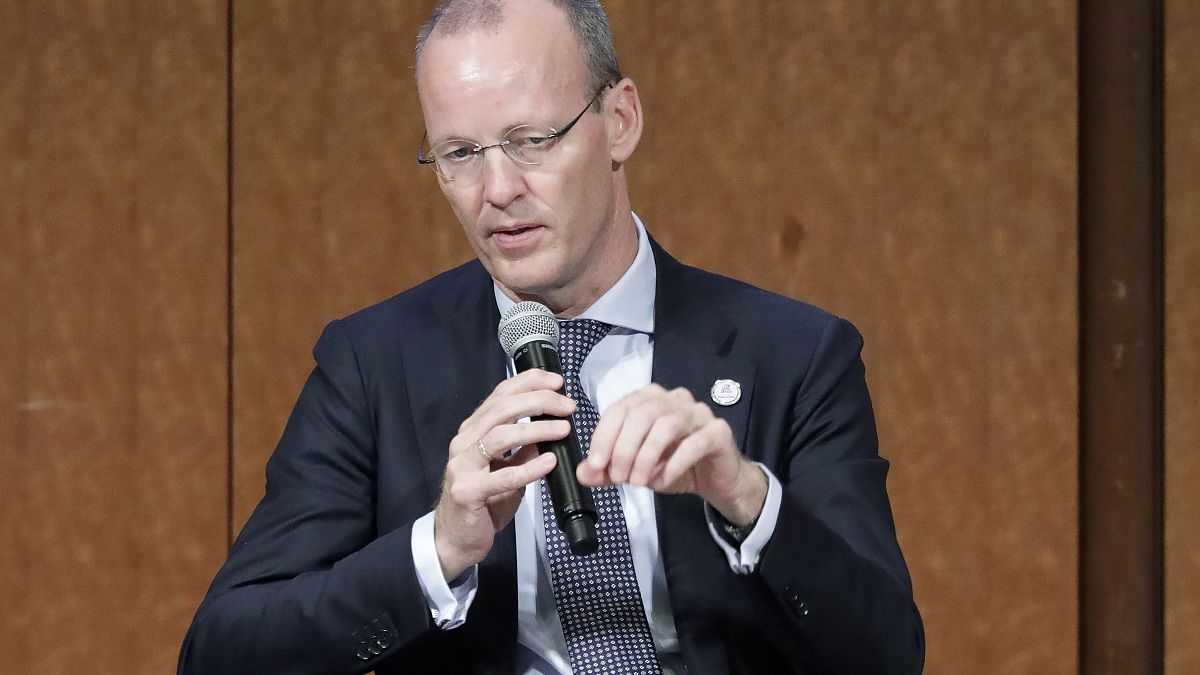Klaas Knot, President of De Nederlandsche Bank, anticipates a June ECB rate cut and has advocated for deeper financial integration through the capital markets union and banking union to enhance Europe's economic resilience and growth potential.
Dutch Central Bank President Klaas Knot emphasised the likelihood of a June European Central Bank (ECB) rate cut and the critical need for deeper capital market integration to unlock the full potential of Europe's single market.
Speaking at a high-level forum in Amsterdam hosted by the Foreign Bankers Association, where Federal Reserve Chair Jerome Powell was also featured, Knot indicated that Frankfurt is prepared to "gradually take its foot off the brake" based on supportive economic data.
"If the incoming data confirms the current trends, it would be appropriate to start reducing restrictions," Knot explained.
Data-driven ECB rate cutting strategy
However, he remarked the ECB’s cautious approach beyond this point, clarifying there is "no commitment beyond June," stressing a strictly data-driven strategy.
One of the significant themes of Knot's remarks was the differentiation between the ECB and the Fed, highlighting that each central bank adheres to its specific mandate.
Knot stated: "Our markets are interwoven to a large extent," but he clarified that the ECB's decisions are primarily based on the euro area's specific economic conditions. Knot made it clear that Frankfurt’s actions do not simply follow the Fed.
He mentioned that tighter Fed policies compared to the ECB might lead to a stronger dollar and a weaker euro, potentially raising inflation in the euro area due to costlier imports. However, he also pointed out that these effects might be countered by other global financial conditions influencing bond yields, which could have disinflationary impacts. Knot underscored that these interactions do not significantly shift the ECB’s policy direction.
Eurozone growth failing to keep up with US
According to Knot, the economic trajectories of Europe and the United States have diverged significantly, particularly in response to the pandemic and geopolitical tensions such as Russia's invasion of Ukraine.
He pointed out that while the eurozone has demonstrated remarkable resilience, it has not experienced the same level of growth as the United States.
He attributed this growth differential to several factors, including differing fiscal policies during the pandemic, the negative economic impact of the energy crisis triggered by geopolitical tensions and labour market dynamics.
Knot explained that the eurozone's approach to job security during the pandemic resulted in less labor and capital reallocation, which contrasts with the productivity-enhancing reallocation seen in the United States.
Advancing the capital markets union (CMU)
Knot also underscored the necessity of advancing the capital markets union (CMU) and banking union within the European Union.
Highlighting the need for deeper financial integration in Europe, Knot criticised the current fragmented financial landscape.
"We are not tapping the full potential of the single market," he stated.
These initiatives, according to Knot, are crucial for enhancing intra-European trade and financial resilience.
The panel discussion also touched upon the challenges faced by Credit Suisse in 2023, serving as a stark reminder of the critical importance of robust governance within financial institutions.
Knot pointed out that the collapse of Credit Suisse was not due to a lack of capital or excessive credit risk but rather "management failures," including fraud and mismanagement at the highest levels.
He stressed that good governance is essential to maintaining confidence in financial institutions and preventing crises.



